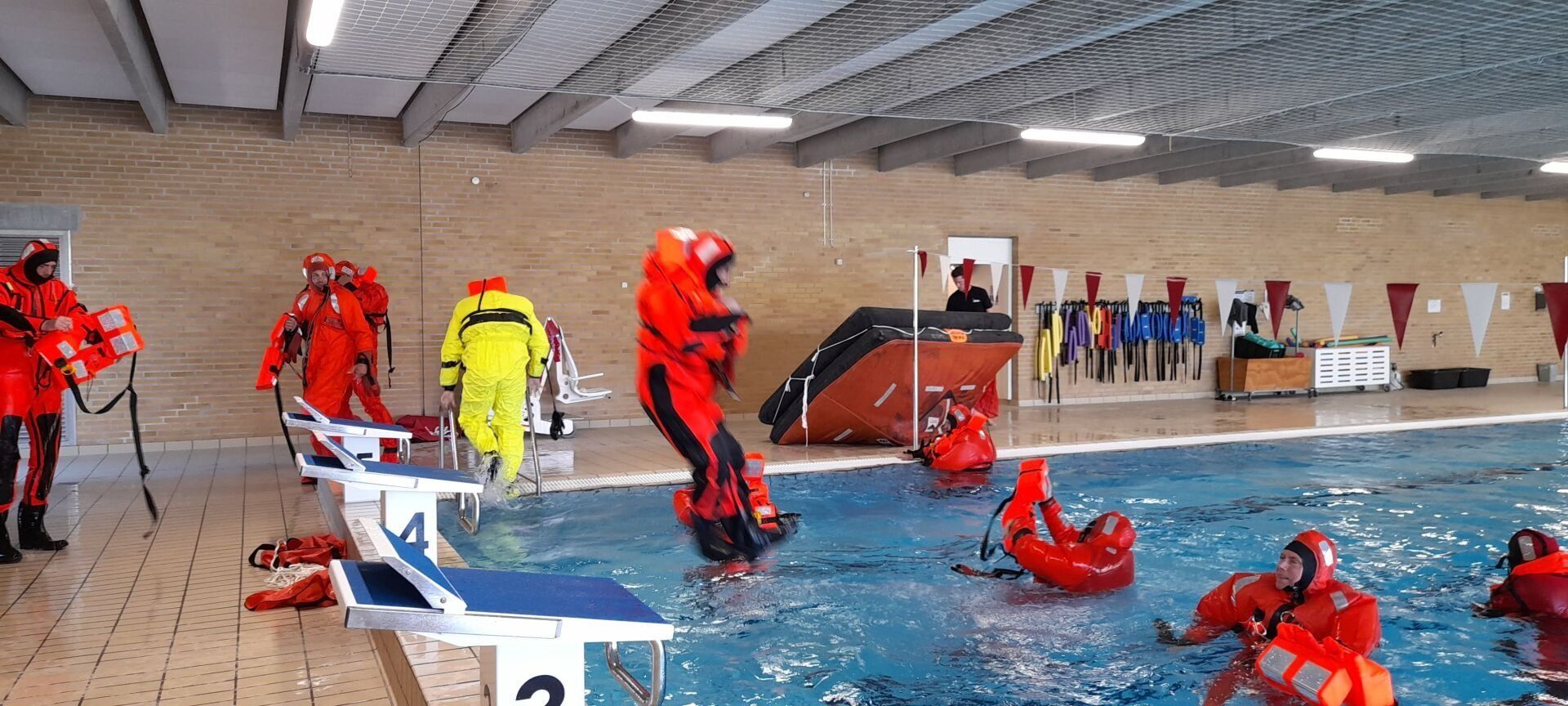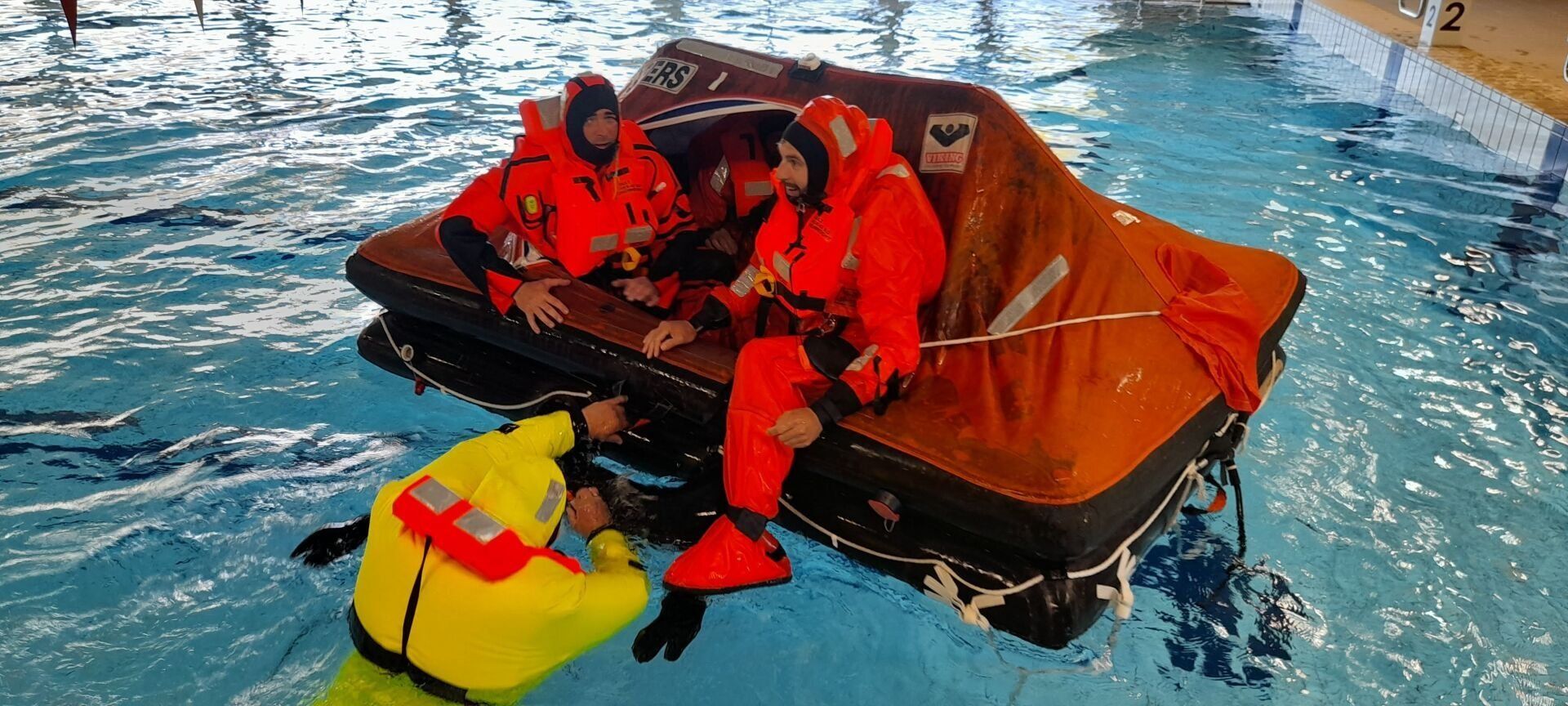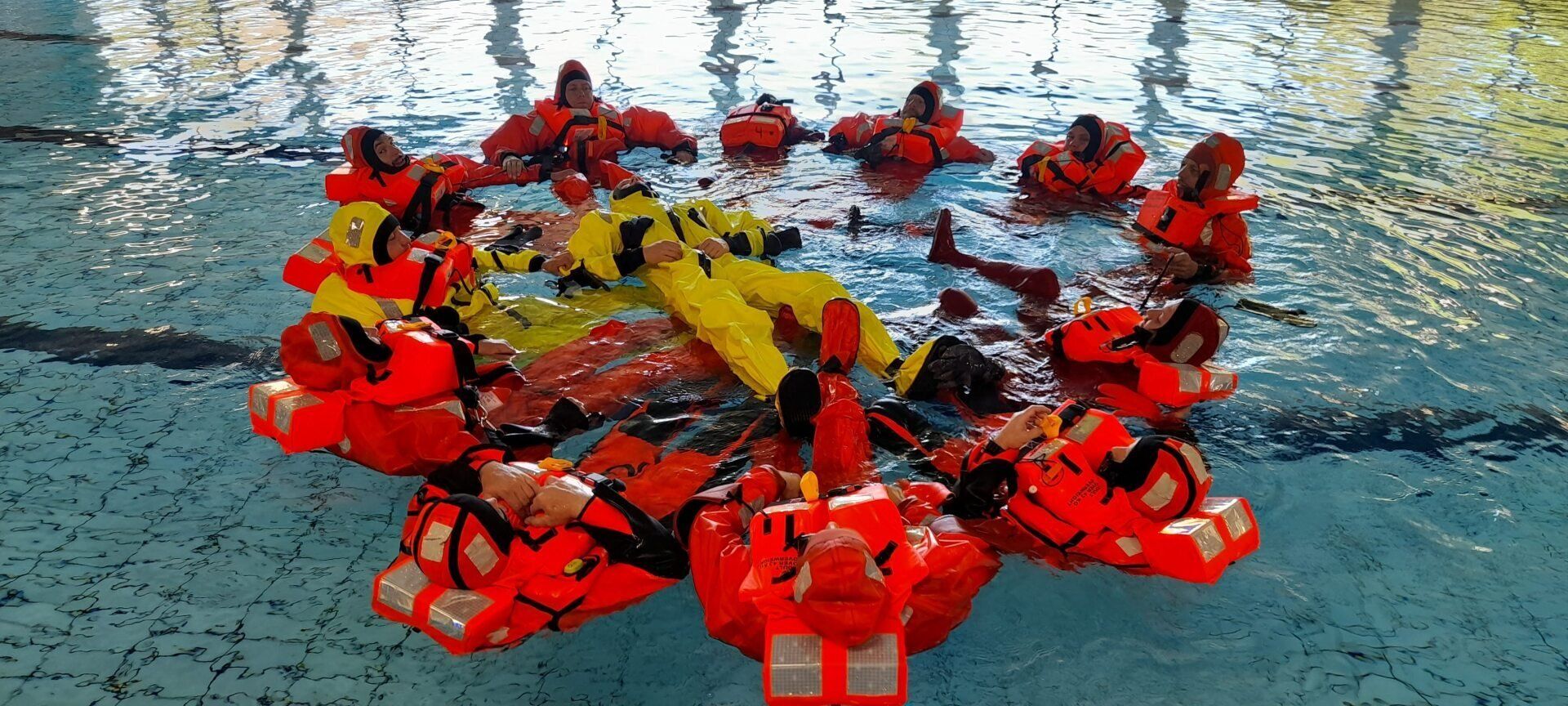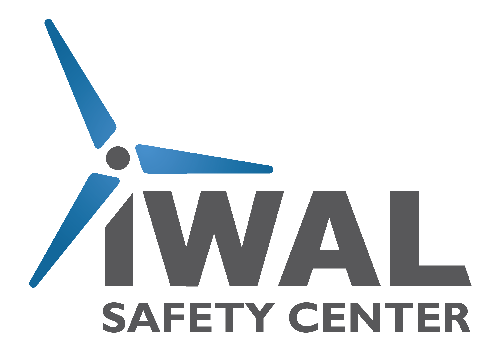Sea Survival
IMO STCW
(International Maritime Organisation) Standard of Training and Certification for Watchkeepers



Sea Survival
(STCW) IMO
About the course
In all accident situations, it is a rule that you must save yourself before you can save others. The GWO course is basically based on the IMO course STCW 1-1 (which we also offer), which deals with personal safety at sea and what options you have to save your life with the equipment found on ships and life rafts. We review safety and rescue equipment as well as the dangers of staying in cold water for a long time. We talk about how to best adapt to the situation and survive as long as possible, as well as review first aid for injuries related to being in the water. The day ends with practical exercises in what has been learned, in the sea and on the beach at a local port.
Maritime safety courses are a necessity if you are going to work on the Fehmarn Belt, either as a permanent employee or you have to go out and repair something, inspect, make a report, photograph or something else in connection with the project. The courses are certified by the Danish Maritime Authority via the Marine School in Nykøbing Falster.
Course in Kramnitse Harbour
If you just have to go out on a vessel to do simple work and come back ashore, and not be part of the crew, a 1 day course, STCW 1-1, which deals with your own safety in case you have to go into the water, is enough or falling into the water and general survival technique in the wet element.
Re A-VI/1-1 sea safety The participant must have the theoretical knowledge and skills to: 1) put on a life jacket, 2) put on and use a life suit, 3) jump safely into the water from a certain height, 4) bring a life raft, with the bottom up, on the right keel wearing a life jacket, 5) swimming wearing a life jacket, 6) staying afloat without a life jacket, 7) getting on board a lifeboat or raft from the ship and from the water wearing a life jacket, 8) initiating immediate measures that increase the chance of survival during a stay in the rescue boat/raft, 9) deploy drift anchors, 10) operate the rescue equipment, 11) operate devices for position indication, including radio equipment.
If you have to work permanently as part of the crew or on a barge or other vessel, you need the above module as well as modules 1-3 and 1-4, i.e. 3 modules together that we offer here at IWAL A/S as a complete package.
Re A-VI/1-3 basic first aid The participant must below:1. be able to assess the need for help for injured persons and the threat to their own safety, 2. have an understanding of the structure and functions of the body, 3. have an understanding of measures that must be implemented immediately in emergency situations, including having skills in: 1. place a casualty in the correct position (locked side bearing), 2. apply resuscitation technique,3. stop bleeding,4. initiate suitable measures for basic treatment of shock,5. initiate appropriate measures in case of burns and scalds, including accidents caused by electric current, 6. rescue and transport an injured person,7. improvise bandages and use materials from the emergency fund
Re A-VI/1-4 personal safety and care for human life and the environment The participant must below:1. have knowledge of contingency plans for measures to be implemented in emergency situations, 2. have knowledge of alarm signals and special duties assigned to the crew according to the alarm instructions; muster stations; correct use of personal safety equipment,3. have knowledge of precautions that must be taken when discovering a potential emergency situation, including fire, collision, sinking and ingress of water into the ship, 4. have knowledge of precautions that must be taken when alarm signals are heard,5. have knowledge of escape routes and internal communication and alarm systems,6. have knowledge of the consequences of pollution of the marine environment caused by the ship's operation or accidents,7. have knowledge of basic procedures for protecting the environment,8. understand the importance of always following safe work routines,9. have knowledge of available safety and protective equipment for protection against potential dangers on board ships, 10. know about precautions that must be taken before entering closed spaces, 11. have knowledge of international precautions regarding the prevention of accidents and occupational safety, 12. ability to understand orders and communicate with others in relation to duties on board ships,13. know the importance of maintaining good human relations and a good working community on board ships,14. contribute to taking care of people and the environment; working conditions; individual duties and rights; the dangers of drug and alcohol abuse.
Company information:
IWAL A/S
International Wind Academy Lolland A/S
Rudbjervej 21 - 4983 Dannemare
CVR no: 29937974
Customer satisfaction 5.7 where 6.0 is max
Contact Information:
Tel: 45 5467 6078
info@iwal.dk
www.iwal.dk




